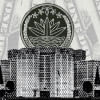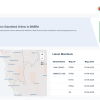NBR plans self-assessment of tax liabilities for all firms

The National Board of Revenue (NBR) is likely to introduce self-assessment for companies from 2024-25 to allow them to determine their own tax liabilities and cut reliance on taxmen.
Now, both individual and corporate taxpayers have the option of filing returns under the "general assessment" or "self-assessment" method. Thanks to the universal self-assessment, a taxpayer will be responsible to assess their liabilities on their own.
"There will be no provision of the general assessment from the next fiscal year. We are working on it," said an official of the NBR.
This means all tax files will have to be submitted through the universal self-assessment system, and if any issues are detected, the file will go through the audit process, he said.
Officials said self-assessment increases taxpayers' ownership since their understanding of obligations deepens. It also reduces their dependence on the authorities when it comes to fixing their tax bills.
Another senior official of the NBR thinks universal self-assessment is likely to serve as a catalyst for building a relationship of trust and cooperation between taxpayers and the tax authorities and enhancing taxpayers' confidence in the tax administration and their willingness to pay taxes.
They said self-assessment will require companies to maintain records properly to support their incomes and expenses.
Experts and business leaders said most large taxpayers choose the general method to avoid hassle and further scrutiny after the return filing.
Many complexities may arise during audits under universal self-assessment, meaning firms will face hassle at the hands of field-level officials.
Tax officials, however, try to assuage the fear, saying a maximum of one percent of the returns will go through audits.
"The audits will be carried out to see whether taxpayers have properly disclosed their incomes and paid taxes. Therefore, the fear is not logical," said one official.
However, an analyst hinted at the possibility of bribery as auditing often requires approvals from multiple officials at various stages.
Snehasish Barua, director of SMAC Advisory Services Limited, a consultant firm, said businesses often complain about arbitrary power tax officials enjoy while conducting assessments.
"If there is no normal assessment, the scope of using arbitrary power will be reduced which may give a boost to the confidence level of firms."
He said the filing of personal tax returns under universal self-basis was made mandatory last year in order to remove physical contact between taxpayers and officials.
According to the chartered accountant, it has to be kept in mind that files might be selected for audits.
"If the audit selection is not done properly following a risk-based approach, tax evasion may take place due to a lack of audit. An expectation gap will widen if the same person is selected for an audit every year. This is a general complaint of businesses."
Moreover, if an assessee claims losses or refunds through assessment, the tax amount is finalised quickly, he added.
"But, if not audited, tax officials, as a procedural reason, may doubt these refunds or losses. This must be clarified in the amendment."
TIM Nurul Kabir, executive director at the Foreign Investors' Chamber of Commerce and Industry, welcomed the NBR's likely move.
"At the same, the NBR should focus on total integration, bringing its three wings under combined automation."
In Bangladesh, the number of taxpayer identification number-holders has exceeded one crore.
In 2022-23, some 35,976 companies filed returns, up 6 percent year-on-year. In total, taxpayers submitted 41 lakh returns, an increase of 17 percent, NBR data showed.

 For all latest news, follow The Daily Star's Google News channel.
For all latest news, follow The Daily Star's Google News channel. 








Comments